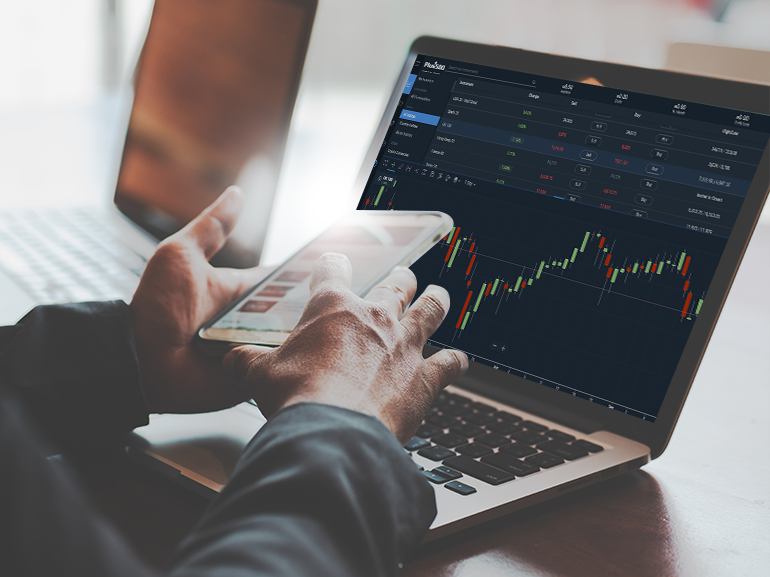Do Investors Believe Evergrande Risk Diminished?
What is Evergrande and why is it all over the news?
The Evergrande Group became the most valuable real estate company in the world in 2018. As of April of this year, the group has maintained that title, even as the brand lost 2% of value to $20.2 billion probably because of the tightening liquidity amid an increasing regulatory crackdown.

However, in June, Fitch Ratings, the credit rating agency, downgraded Evergrande and its subsidiaries from B+ to B while pointing out the group’s rising debt. Unfortunately for the property developer, Fitch didn’t stop there. On July 28th, the rating agency downgraded Evergrande to CCC+, and on September 7th, Fitch again downgraded Evergrande to CC.
Fitch’s last downgrade on September 8th came only two days after Moody’s (MCO) credit agency also reduced Evergrande’s and its subsidiaries’ ratings by three notches to Ca from Caa1. Moodys’ added a negative outlook, stating that the group is “likely in or very near default.” Like Fitch, it was also Moody’s third rate cut since June.
Along with the credit agencies slashing ratings and providing negative outlooks, JPMorgan (JPM) did the same, sharply reducing its price target for China's debt-hobbled property giant to HK$2.80 from HK$7.20 on Friday, citing expectations of further negative news for the company about its financial stability.
In this manner, from China’s biggest developer, Evergrande fell to one of the country’s worst debtors, as regulators cracked down on the sector’s high leverages. The company’s enormous debt of over $300 billion may stand in the country’s way of cleaning up the real estate market from irresponsible borrowing.
This is the background that led market observers to ask whether Evergrande was the Chinese equivalent of Lehman Brothers. On September 15, 2008, the legendary U.S. investment firm filed for bankruptcy, firing the opening shot for the 2008 crash that ushered in the Great Recession.
The fears that an Evergrande default, as warned by credit agencies, would be contagious to other markets, as did Lehman Brothers, riled markets.
Markets’ Reactions to Evergrande’s Finance Woes
U.S. stocks fell the most in four months, at the start of the week on September 20th. The S&P 500 (ES) Index dropped 1.7%, exacerbated by the quarterly expiration of options and futures on Friday. The benchmark dipped below its 50-day moving average, a technical indicator that has been supporting the current uptrend.
The NASDAQ 100 (US-TECH 100) fell 1.2%, which was its sharpest decline since May.
Europe also saw major selloffs. The Dax (Germany 40) underperformed other European Indices, declining over 1% to 15,651.75 on Thursday, September 16th and over 2% on Monday, September 20th, closing at 15,132.06.
However, stocks have been paring losses on dip buyers. The PBOC added liquidity, ensuring markets don’t run out of money, calming investors. Also, Evergrande announced that the company negotiated with bondholders to pay the September coupon, ensuring it doesn’t default.
In addition, the U.S Dollar Index nearly reached a monthly high, as investors turned to the haven amid the fears that the Chinese giant will cause a major global selloff. However, the dollar has eased since along with the rising stocks.
Are Investors No Longer Concerned?
Are investors signalling they are no longer concerned about Evergrande, as they bid up stocks and move from the dollar to other currencies? Even Chinese currencies, China’s Offshore Chinese Renminbi (USD/CNH), as well as the Hong Kong Dollar (USD/HKD) (the currency in which Evergrande is listed on the Hong Kong Exchange), are on the rise against the USD on Wednesday.
The USD/CNH is 0.2% down, as of the time of writing on Wednesday. This is the pair’s sharpest decline since September 3rd. This dip follows the pair’s rise of almost 0.9% from September 16th till September 20th. Does this daily reversal suggest the end of the pair’s rise?
Alternatively, the USD/HKD is flat on Wednesday. However, after Tuesday’s 0.07% advance, its sharpest since August 17th, the pair’s fall has come to a stop.
Investors’ willingness to overlook Evergrande’s financial troubles may depend on whether China bails out Evergrande, what the U.S. didn’t do for Lehman Brothers. Will China save Evergrande to avoid more market turmoil, or would the country prefer to send a message to other companies amid a broad regulatory clampdown and let the company fail?
